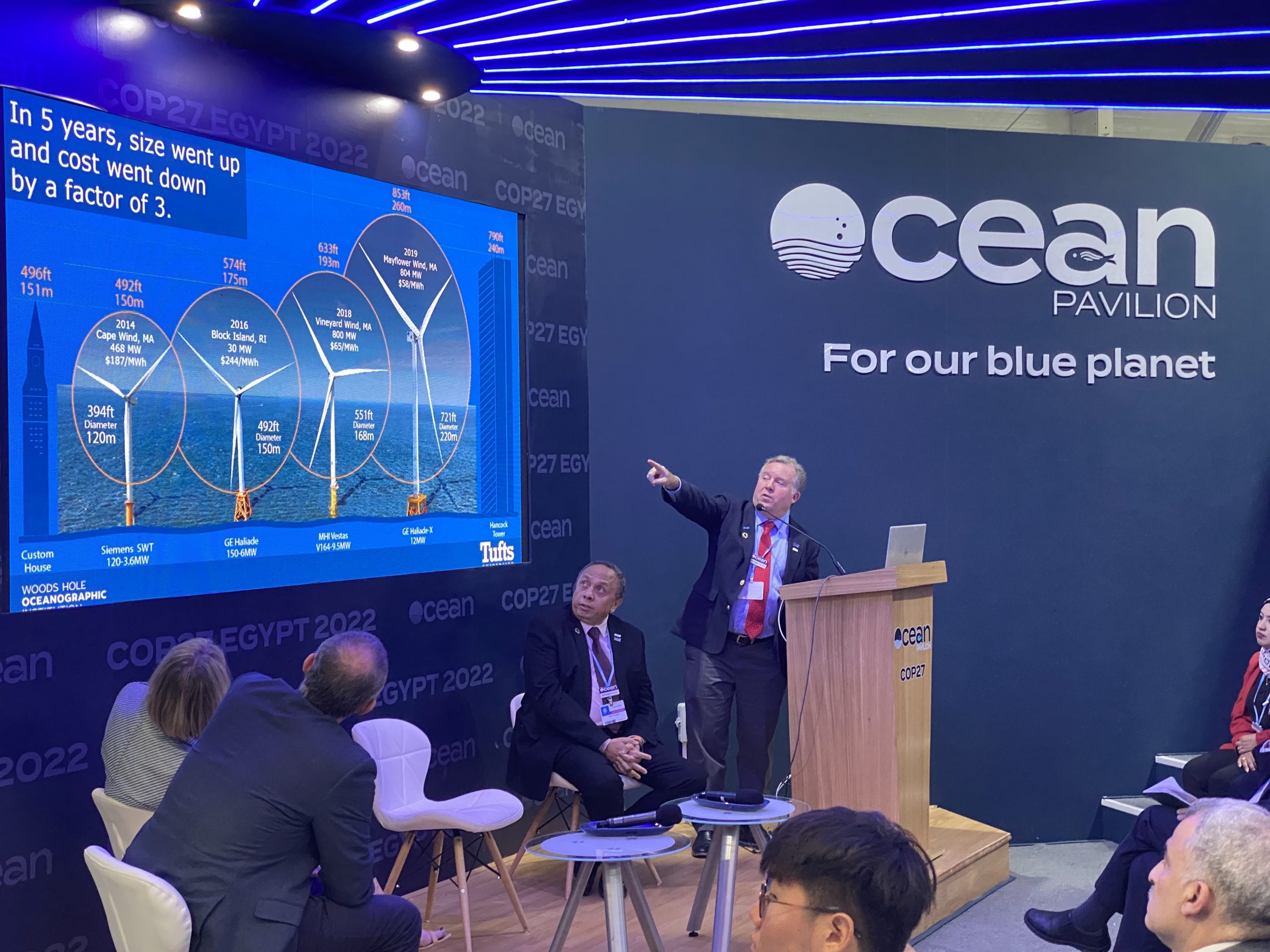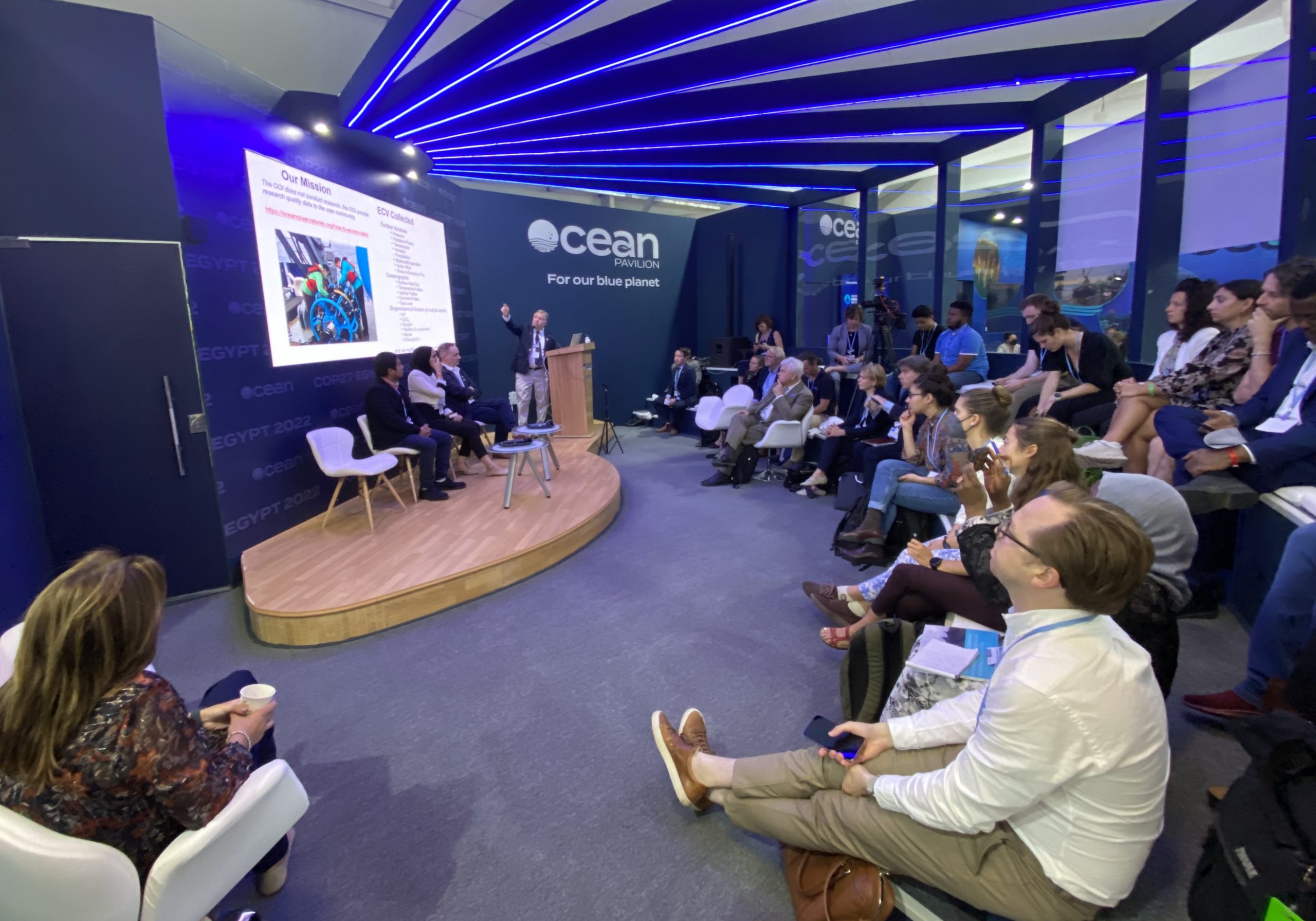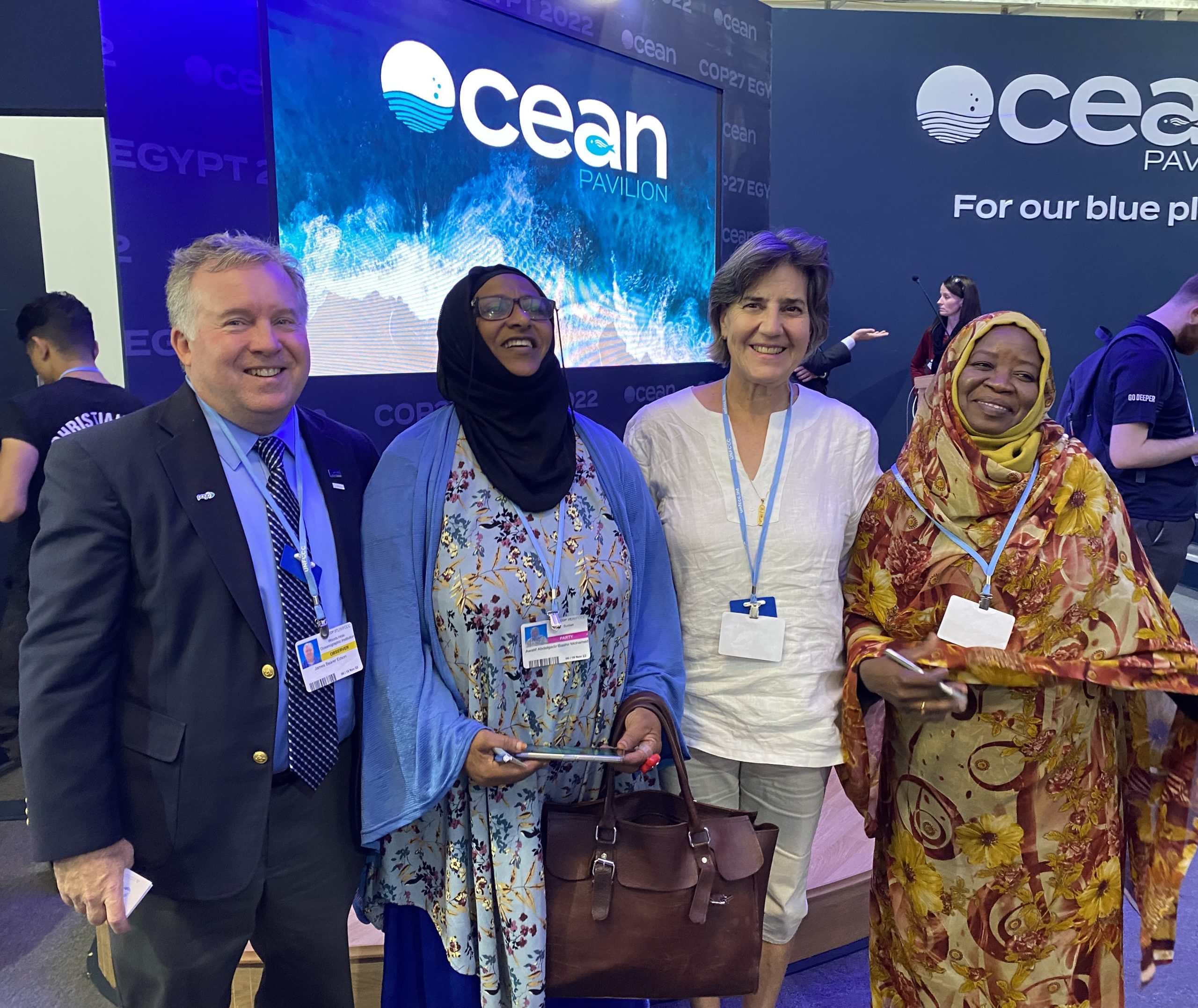Edson Discusses Ocean Observing at Global Level
Ocean Observatories Initiative (OOI) Principal Investigator James Edson spent the past week discussing global ocean observing needs at the 27th session of the Conference of the Parties (COP 27). COP27 drew leaders from around the world who came together to develop strategies for minimizing and managing climate change. Edson was invited to travel to Sharm El-Sheikh in Egypt to represent both Woods Hole Oceanographic Institution (WHOI) and OOI at the first-ever Ocean Pavilion at COP27.
Edson was a panelist for three sessions at COP27. The first brought together leaders of ocean observing systems to figure out a way to build a local to global ocean observing system to mitigate and adapt to climate change. This panel was organized by Partnership for Observations of the Global Ocean (POGO). The second, organized by the UK’s National Oceanography Centre, looked at “blue carbon” and the role the ocean can and might play in the uptake and storage of carbon in the marine system. Lastly, Edson addressed opportunities that the blue economy, or marine-related commerce, might facilitate sustainable development and to identify where investment is needed in research, skills, and innovation. The panel was organized by Egypt’s National Institute of Oceanography and Fisheries and Edson described his experience with offshore wind energy and it potential for job training and growth.

The Ocean Pavilion was jointly organized by WHOI and the Scripps Institution of Oceanography, and supported by 15 additional oceanographic research institutions from around the world, serving as partners in the Pavilion. The Ocean Pavilion was a buzz with conversations from morning to evening each day. When not sharing his expertise in panel discussions, Edson spent his time at the Pavilion networking with scientists, educators, students, dignitaries, bankers and industry representatives who stopped by to learn more about the ocean’s role in climate regulation.
“This is exactly the type of place OOI needs to be so that our data are visible and accessible to researchers the world over,” said Edson. “The idea behind the Ocean Pavilion was to bring needed attention to the role of the ocean in regulating climate and how much the ocean is changing in response to ongoing changes. It was important that OOI had a presence there because our data are needed to determine what’s happening in the ocean. This is perfectly aligned with our mission to encourage use of our data to advance understanding. I hope the contacts we made at COP27 will lead to a continued and expanded use of OOI data at a global level.”


